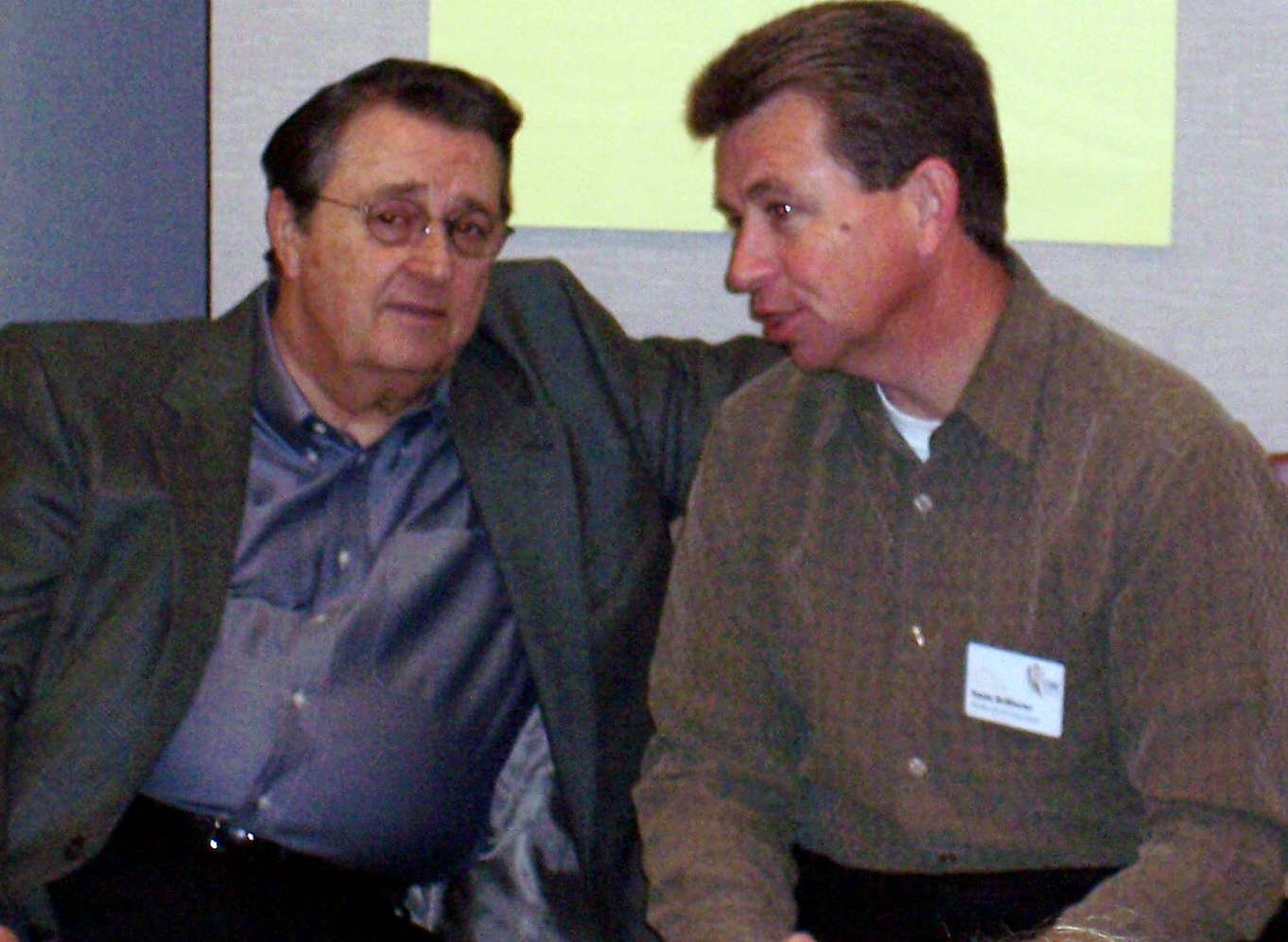
RIVERSIDE, Calif. (BP)–Around 40 young Southern Baptist leaders from West Coast states gathered Feb. 28 on the campus of California Baptist University to discuss partnering with the Southern Baptist Convention and its array of local, statewide and national expressions. The meeting marked the second in a series of dialogues this year sponsored by LifeWay Christian Resources.
“I do believe that Southern Baptists need to deal with issues important to you,” James T. Draper Jr., LifeWay’s president, told the leaders who ranged in age from their 20s to early 40s.
The dialogues are the result of Draper’s message during LifeWay’s report at last year’s SBC annual meeting in Indianapolis. He told messengers he had a growing concern over a pronounced decline in the number of baptisms and a growing distance between the convention and younger Baptist leaders. Then Draper expanded upon this theme in a series of articles in Baptist Press, starting with “Is the Southern Baptist Convention a Frog in the Kettle?” that appeared a week after the convention.
Thousands of young Southern Baptists have responded to the questions Draper asked on a discussion board on LifeWay’s website (www.lifeway.com/youngerleaders). LifeWay held the first of eight scheduled dialogues in Bossier City, La., in January designed for LifeWay and state convention staff to hear the concerns of young leaders. These discussions culminate June 19 with a Young Leaders Celebration during the Southern Baptist Convention.
“I think Dr. Draper has done a great thing by opening the door of dialogue on these matters,” said John Montgomery, 39, an associate pastor at Immanuel Baptist Church in Highland, Calif. “I think this is a great start as he gives a voice to this important issue.”
In Riverside, the young leaders spent most of the morning brainstorming solutions to issues organized around five areas: missions and evangelism, creative and innovative approaches, convention renewal, biblical diversity and inclusiveness and healthy relationships. After lunch, participants discussed some of the solutions they had brainstormed.
Event organizers encouraged participants to come up with 15-word solutions to the problems raised. These solutions were to be aimed at both convention leaders and younger church leaders.
Many of the solutions revolved around a perceived need for older leaders to mentor younger leaders. Some suggested the possibility of creating an online listing of older pastors willing to be involved in a mentoring relationship. Some LifeWay staff at the event brought up the possibility of “reverse mentoring” as well, where younger ministers would help older ones reach out more effectively to young people in their community.
Another discussion centered around opportunities for young leaders to be incorporated more into the decision-making process of state, local and national Southern Baptist entities. One group suggested the possibility of holding the convention on college campuses or sending live video feeds of the Southern Baptist Convention to local colleges.
Still broader issues were discussed during the day. Many voiced their concern that the growing gap between those ministering in a postmodern context and those ministering in more traditional environments might be difficult to close.
Heath Pressley, a Seattle-area student minister and church planter, said he believes Western culture has moved into a new era and if the church doesn’t look to minister within that culture it will lose much of its evangelistic effectiveness. Some Southern Baptist churches won’t exist in five or 10 years, he said, unless they learn to effectively reach out to people who come from a postmodern perspective.
“For example, Seattle in a lot of ways is an inherently postmodern city,” 37-year-old Pressley said. “It has rejected the traditional Christian church. The evidence is overwhelming in that regard. There is a movement in Seattle where churches are starting and launching and creating relevant spiritual environments that are connecting with people who longed to connect with God, and now we are speaking their language. That is what I am called to do, and I believe that is really the heartbeat of the SBC. But somehow we have lost our way.”
Many of those who attended the Riverside session looked forward to more dialogues being held around the country. Several said they would like to see the dialogue approach integrated more into state and national conventions.
“Things like this is how I really learn the most,” said Ryan Moore, 33, campus minister at the University of Oregon and Lane Community College. “I learn when I get a chance to dialogue with other people who are in ministry in other locations about what they are finding and what they are doing.”
Draper said he hopes the information gathered at these dialogues can help draw attention to the issues. He noted that progress already is being made on the younger leader issue across the denomination. In the past year, two trustees have been added to LifeWay’s board or trustees who are in their late 30s and early 40s. He added that SBC President Bobby Welch will be scheduling a young preacher for one of the major messages at the convention in Nashville this June.
It might take older leaders of the convention some time to work through some of the issues brought up at the dialogue, Draper said, expressing optimism in the final result.
“I think just raising the issues and talking about them is a success,” Draper said. “I don’t know that we will have all of the answers, but at least communicating together will help us come through this.”
–30–
For more information on future dialogues sponsored by LifeWay, visit www.lifeway.com/youngleaders.
















